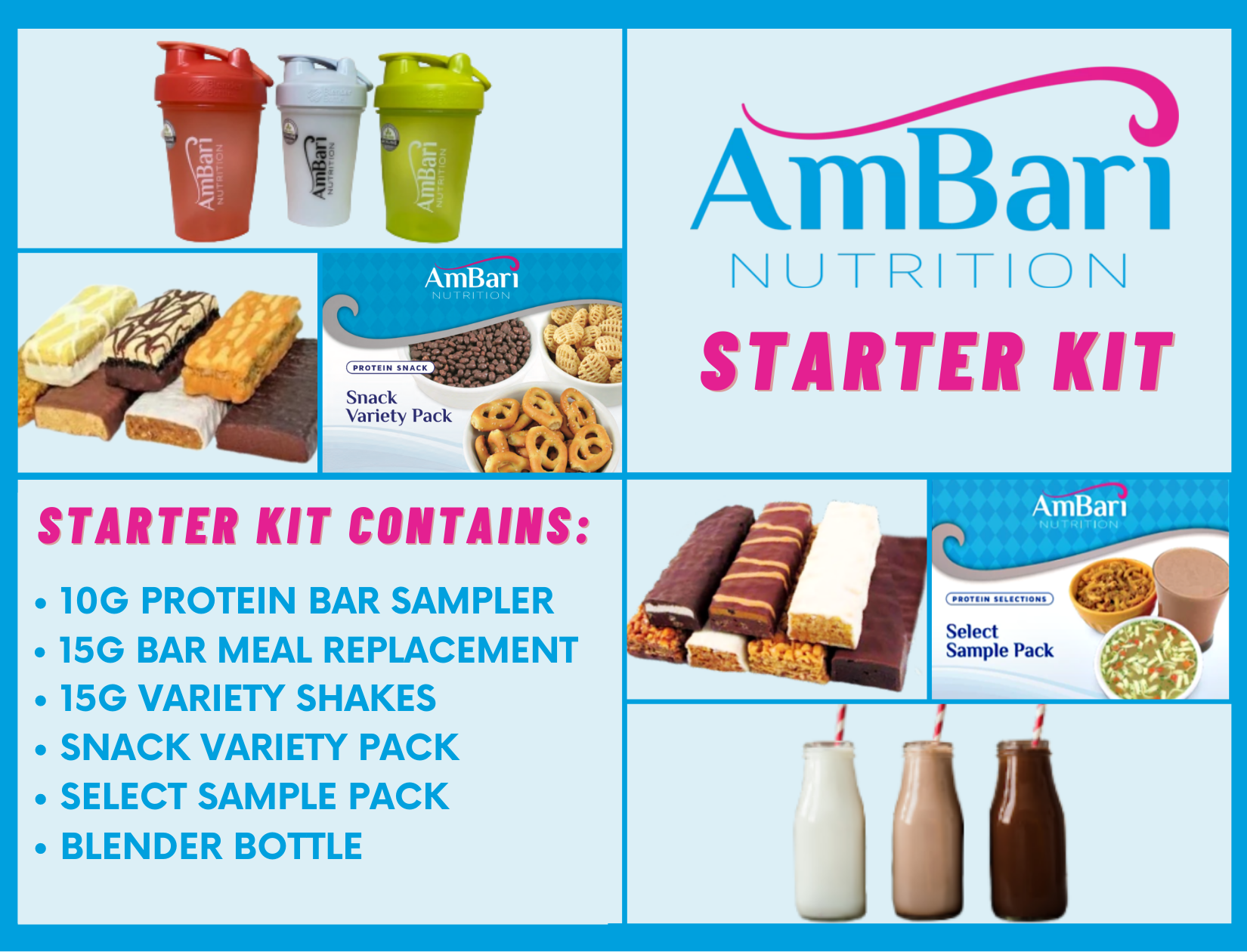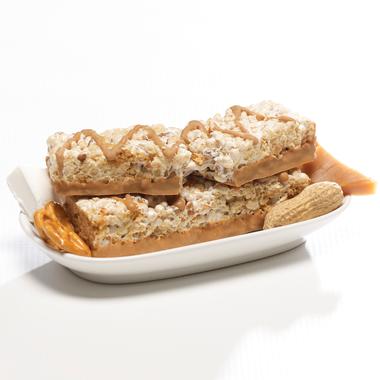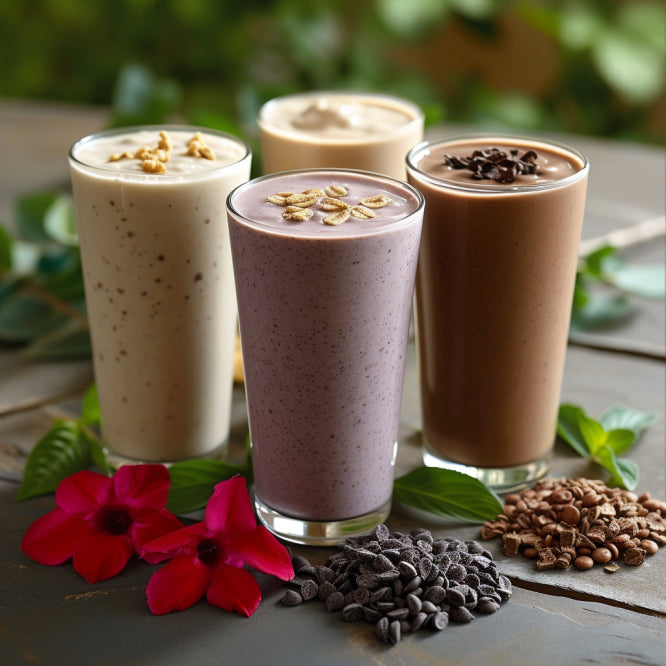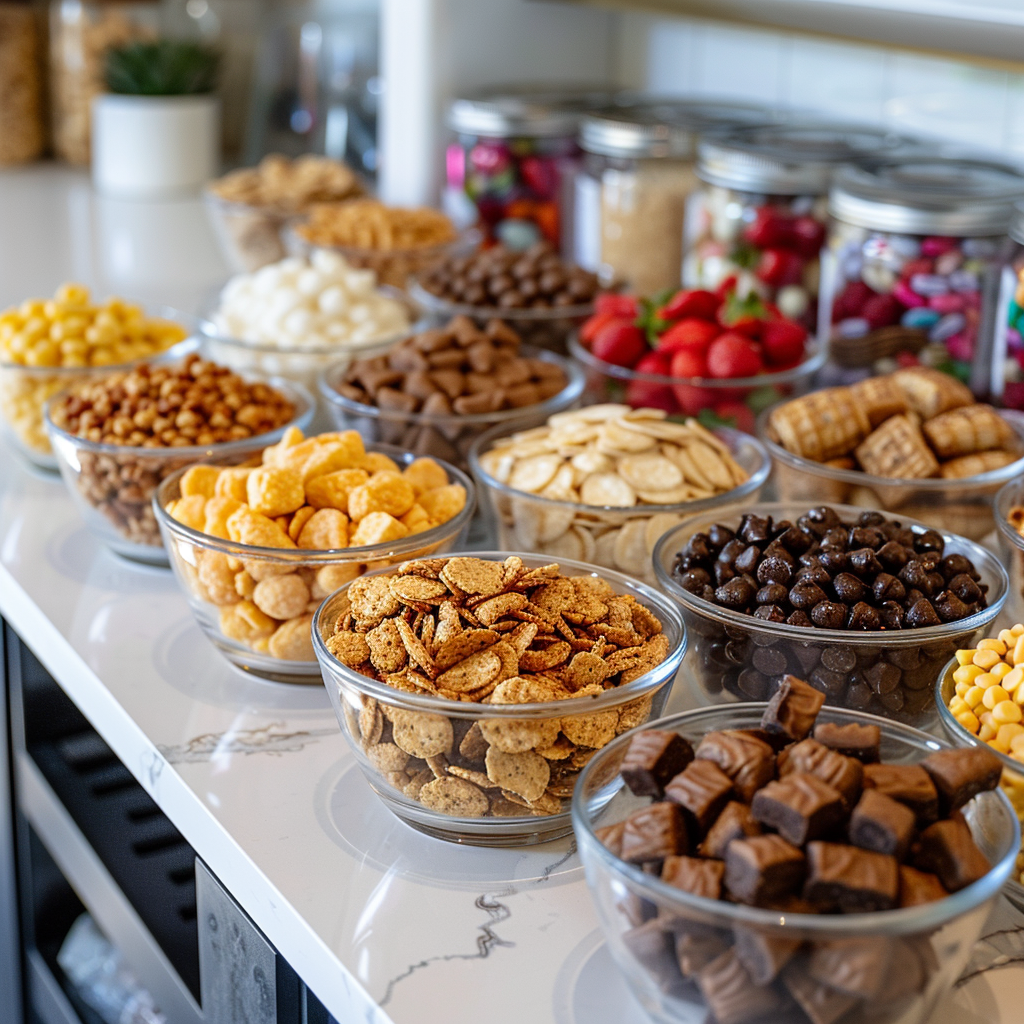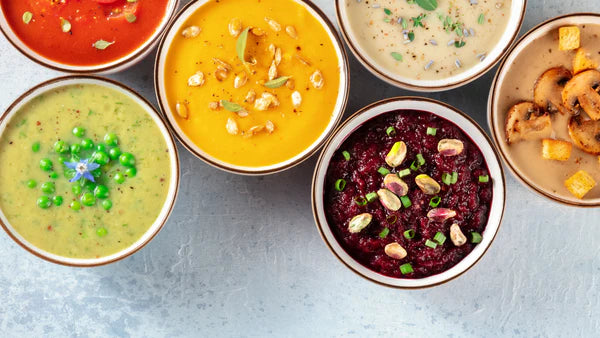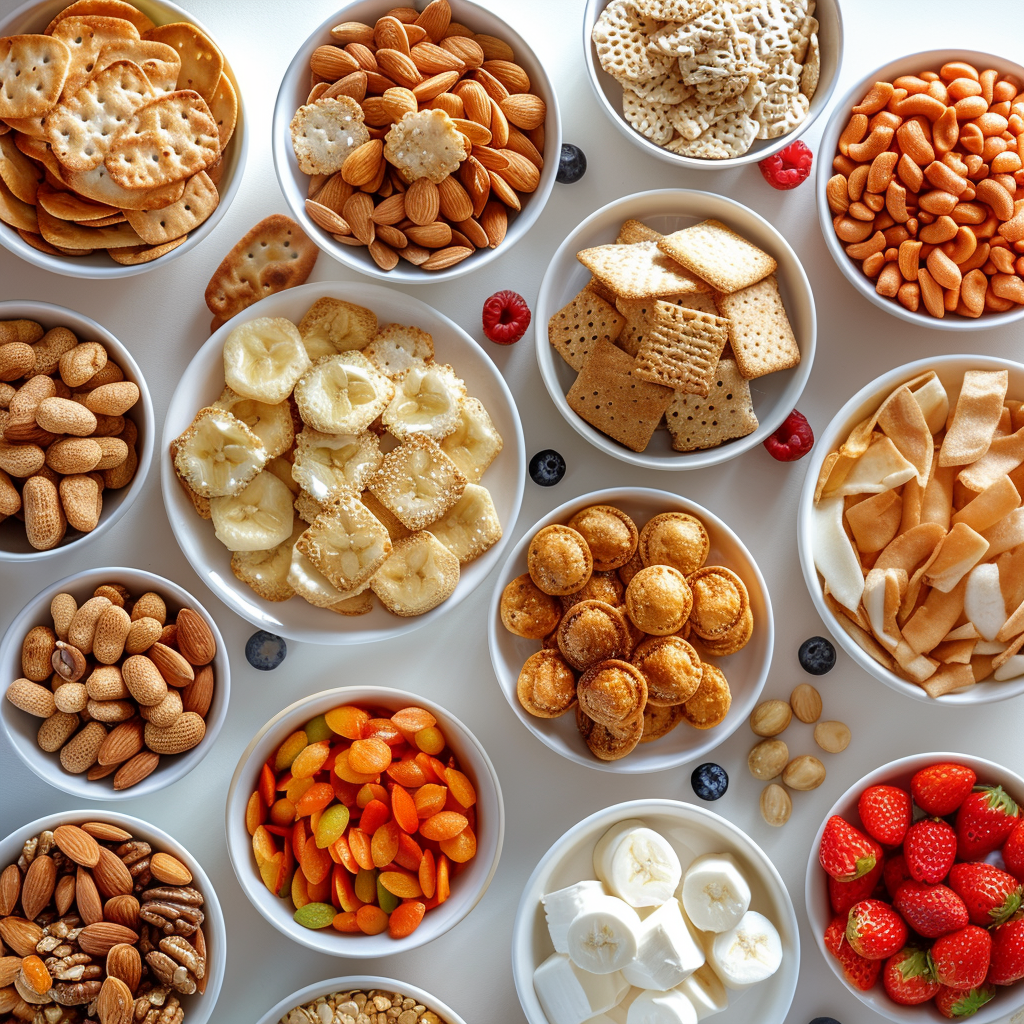Menu
Your cart is empty
Looks like you haven't added anything to your cart yet
Gluten-Free Weight Loss Foods
Gluten is a plant protein found mainly in wheat, which imparts the properties of elasticity to dough. The majority of gluten is found in wheat, however it is also present in rye, and barley. Corn, rice, potatoes and legumes do not contain gluten and are used to produce the flours used for people who cannot tolerate gluten. Oats are also naturally gluten free, however there is more potential for possible mixing with wheat during harvesting or processing.
The Following Products DO NOT Contain Wheat, Rye, or Barley.
**Note this list is for guidance only. See the product label for exact ingredient information**
Brand
Dietary Concern
Product Type
Ultra MULTIVITAMIN with Iron - Bariatric Advantage
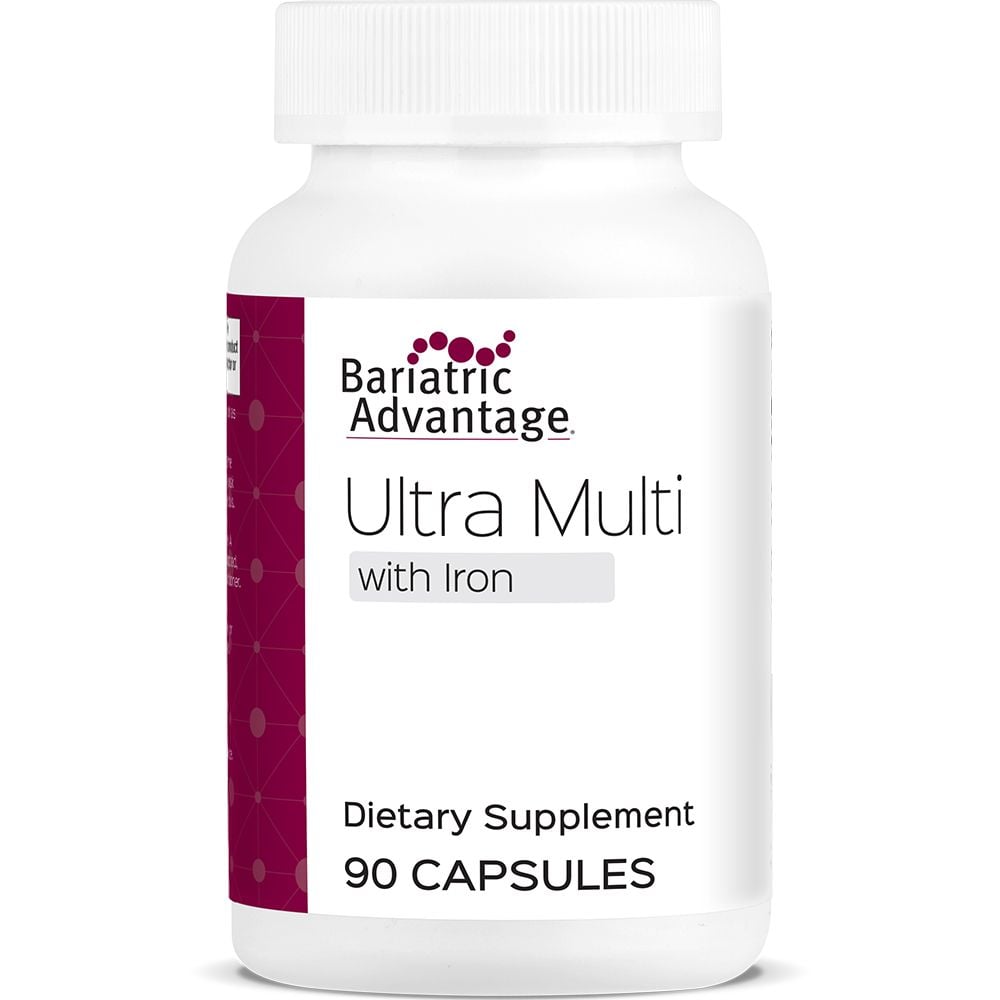
Quick View

Ultra MULTIVITAMIN with Iron - Bariatric Advantage
- Price
- $27.25
Ultra SOLO without Iron - Bariatric Advantage
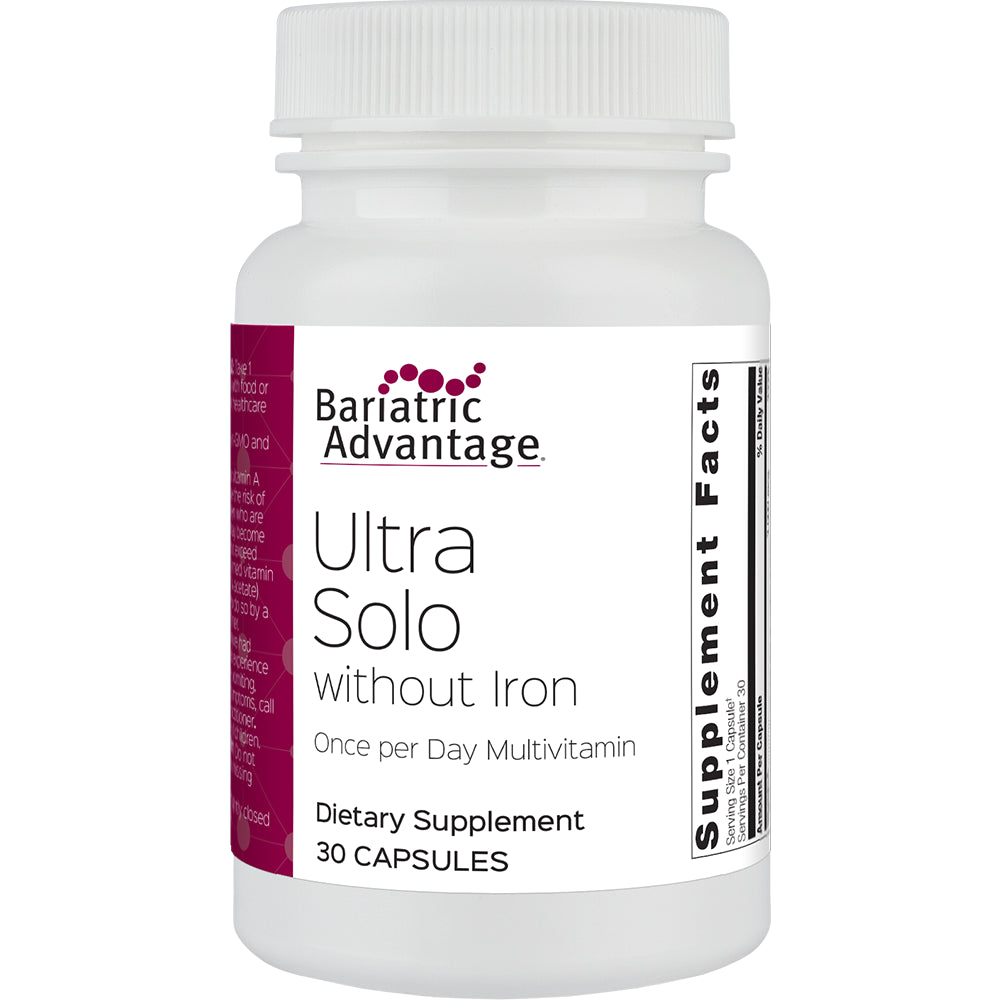
Quick View
Ultra SOLO without Iron - Bariatric Advantage
- Price
- $26
Vitamin B12 SpeedyMelts (Sublingual) - Bariatric Advantage
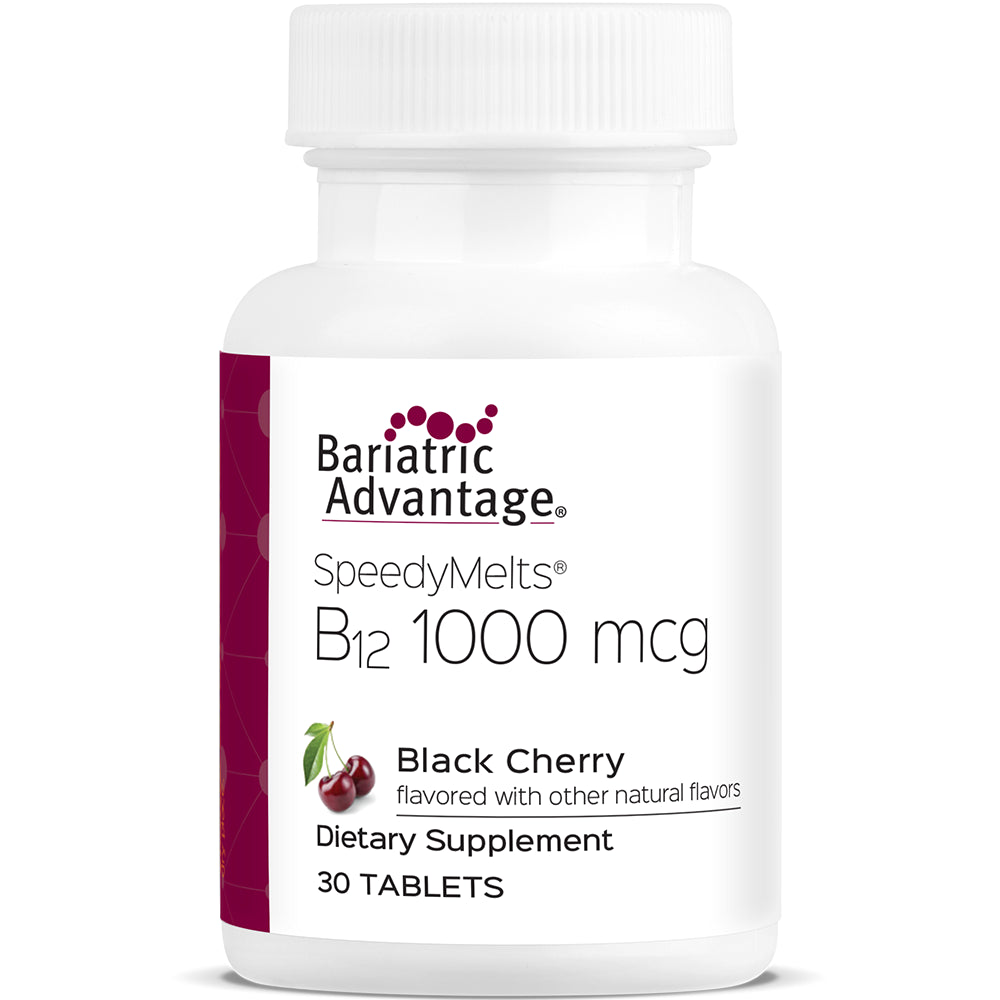
Quick View
Vitamin B12 SpeedyMelts (Sublingual) - Bariatric Advantage
- Price
- $10
Understanding Gluten and Its Impact
What is Gluten?

Gluten is a protein found in wheat, barley, and rye. It's what gives dough its stretchy texture and helps bread rise. While many people can eat gluten without any problems, some have conditions like celiac disease or gluten sensitivity, which make it necessary to avoid gluten.
Why Go Gluten-Free?
People with celiac disease cannot eat gluten because it damages their small intestine. Others may have non-celiac gluten sensitivity, which causes discomfort when they eat gluten. Some people choose to go gluten-free because they believe it will help with weight loss and improve their overall health. But does it really work?
The Role of Gluten-Free Foods in Weight Loss
How Gluten-Free Foods Aid Weight Loss
Going gluten-free can help with weight loss in several ways:
- Reduced Inflammation: Gluten can cause inflammation in some people, leading to bloating and weight gain. Removing gluten from the diet may help reduce this inflammation.
- Improved Digestion: A gluten-free diet can improve digestion for those with gluten sensitivity, leading to better nutrient absorption and overall health.
- Better Control Over Eating Habits: Many gluten-free foods are less processed and healthier, which can help people make better food choices and control their portions.
Essential Gluten-Free Foods for Weight Loss
When following a gluten-free diet, it's important to choose foods that are not only free of gluten but also nutritious and supportive of weight loss. Here are the key food groups to include:
Whole Grains
- Quinoa: A complete protein that is rich in fiber and nutrients.
- Brown Rice: A healthy grain that is filling and full of vitamins.
- Millet: A versatile grain that can be used in many dishes.
- Buckwheat: Despite its name, buckwheat is gluten-free and packed with nutrients.
Fruits and Vegetables
Fresh fruits and vegetables are naturally gluten-free and are essential for a balanced diet. They provide vitamins, minerals, and fiber that help with weight loss and overall health.
Lean Proteins
- Chicken and Turkey: Great sources of lean protein that can help build muscle and keep you full.
- Fish: Rich in omega-3 fatty acids, which are good for your heart.
- Tofu and Legumes: Plant-based proteins that are low in fat and high in nutrients. Check out this Chocolate Pea Protein Shake.
Healthy Fats
- Avocados: Packed with healthy fats and fiber.
- Nuts and Seeds: Great for snacking and adding crunch to meals.
- Olive Oil: A healthy fat that can be used in cooking and salads.

Sample Gluten-Free Meal Plan for Weight Loss
Planning your meals can help you stay on track and ensure you're getting the right nutrients. Here are some ideas for a gluten-free meal plan:
Breakfast Options
- Smoothies: Blend fruits, vegetables, and a protein source like Greek yogurt or protein powder. AmBari Nutrition has some smoothie protein powders that taste great, but you can also add your own fresh fruit and vegetables to them to add some extra nutrition.
- Gluten-Free Oats: Oats are naturally gluten-free, but make sure they are labeled gluten-free to avoid cross-contamination. Top with fruits and nuts. Check out this Gluten-Free Banana Nut Oatmeal from ProtiDiet.
- Eggs with Vegetables: Scramble or poach eggs and serve with a side of sautéed vegetables.
Lunch Ideas
- Quinoa Salad: Mix cooked quinoa with vegetables, beans, and a light dressing.
- Lettuce Wraps: Use large lettuce leaves to wrap lean meats, beans, and veggies.
- Grilled Chicken with Vegetables: Serve grilled chicken breast with a side of steamed or roasted vegetables.
Dinner Suggestions
- Baked Salmon: Season and bake salmon, then serve with a side of brown rice and steamed broccoli.
- Stir-Fried Tofu: Stir-fry tofu with a variety of vegetables and a gluten-free soy sauce.
- Brown Rice with Veggies: Cook brown rice and mix with a variety of colorful, steamed vegetables.
Snack Choices

- Fresh Fruit: Apples, bananas, berries, and oranges are great choices.
- Nut Butters: Spread on gluten-free crackers or apple slices.
- Gluten-Free Crackers: Pair with hummus or cheese for a satisfying snack. Here's a perfect gluten-free crispy snack that is packed with protein: Cheddar Cheese Potato Bites.
Tips for a Successful Gluten-Free Weight Loss Journey
Reading Labels
Always check food labels to ensure they are gluten-free. Gluten can hide in many processed foods, so look for products specifically labeled "gluten-free."
Meal Prep and Planning
Plan your meals ahead of time to avoid reaching for gluten-containing foods when you're hungry. Preparing meals in advance can help you stay on track and make healthier choices.
Staying Hydrated
Drinking plenty of water is so important for weight loss and overall health. It helps keep you full and supports your body's functions.
Incorporating Exercise
Regular physical activity is important for weight loss and maintaining a healthy weight. Try to get at least 30 minutes of exercise most days of the week. This can include walking, jogging, cycling, or any activity you enjoy.
Common Myths About Gluten-Free Diets and Weight Loss
Myth: Gluten-Free Foods are Always Healthier
Just because a food is gluten-free doesn't mean it's automatically healthy. Some gluten-free products are highly processed and contain added sugars and fats. Always choose whole, unprocessed foods when possible.
Myth: Gluten-Free Means Calorie-Free
Gluten-free foods can still be high in calories. Pay attention to portion sizes and overall calorie intake to ensure you're not overeating.
Potential Challenges and Solutions
Dining Out
Eating out can be tricky on a gluten-free diet. Look for restaurants with gluten-free menus or call ahead to ask about gluten-free options. When in doubt, choose simple dishes like grilled meats and salads without dressings or sauces that may contain gluten.
Cross-Contamination
To avoid gluten contamination at home, keep gluten-free foods separate from gluten-containing foods. Use separate utensils, cutting boards, and toasters for gluten-free items.
Maintaining Variety
It's important to eat a variety of foods to ensure you're getting all the nutrients you need. Experiment with different gluten-free grains, proteins, and vegetables to keep your diet interesting and balanced.
Conclusion
Going gluten-free can be a helpful strategy for weight loss, especially for those with gluten sensitivities or celiac disease. Check out all the products in AmBari Nutrition's Gluten-Free collection, we're sure you'll find something you like!
Writer: Carrie H. Carrie is a dedicated health and nutrition writer with a strong background in medical and scientific research. She is driven by a passion for helping others lead healthier lives, diving into the latest scientific research. Combining evidence-based knowledge with practical advice, Carrie strives to provide accurate and valuable information on health, nutrition, and wellness. Her ultimate aim is to empower readers, enabling them to make informed choices about their well-being. |
Reviewed By: Dr. Kevin Huffman Dr. Kevin D. Huffman, D.O., is a leading board-certified bariatric physician with extensive expertise in treating obesity. He has trained countless healthcare providers and founded American Bariatric Consultants to develop protocols and training materials sought by medical societies, pharmaceutical companies, patients, and hospitals. Dr. Huffman's impact extends beyond patient care as he prepares physicians for board certification, expanding access to this vital treatment. |
- Choosing a selection results in a full page refresh.


